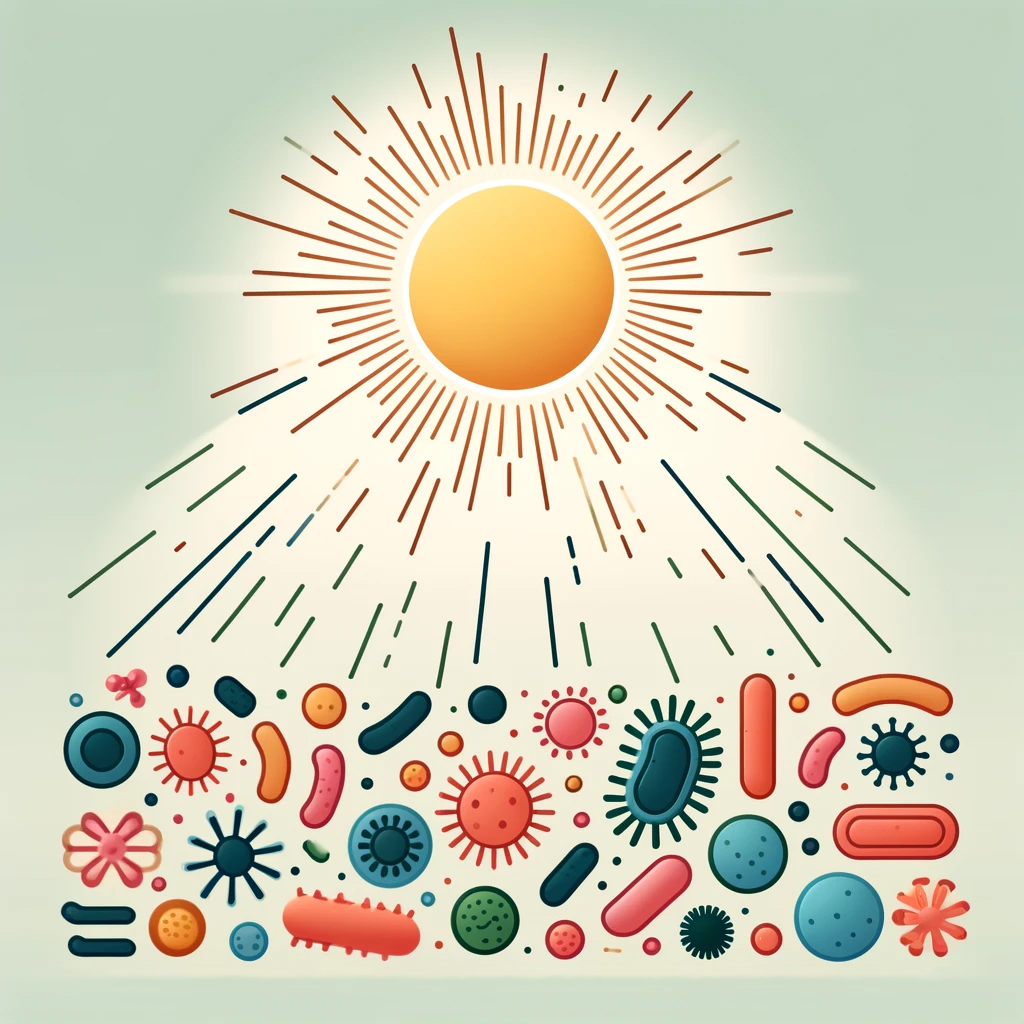Reported today in Science, the researchers found that mice given a diet rich in vitamin D had better immune resistance to experimentally transplanted cancers and improved responses to immunotherapy treatment. This effect was also seen when gene editing was used to remove a protein that binds to vitamin D in the blood and keeps it away from tissues.
Surprisingly, the team found that vitamin D acts on epithelial cells in the intestine, which in turn increase the amount of a bacteria called Bacteroides fragilis. This microbe gave mice better immunity to cancer as the transplanted tumours didn’t grow as much, but the researchers are not yet sure how.
To test if the bacteria alone could give better cancer immunity, mice on a normal diet were given Bacteroides fragilis. These mice were also better able to resist tumour growth but not when the mice were placed on a vitamin D-deficient diet.
Previous studies have proposed a link between vitamin D deficiency and cancer risk in humans, although the evidence hasn’t been conclusive.
To investigate this, the researchers analysed a dataset from 1.5 million people in Denmark1, which highlighted a link between lower vitamin D levels and a higher risk of cancer. A separate analysis of a cancer patient population also suggested that people with higher vitamin D levels2 were more likely to respond well to immune-based cancer treatments.
Although Bacteroides fragilis is also found in the microbiome in humans, more research is needed to understand whether vitamin D helps provide some immune resistance to cancer through the same mechanism.
Caetano Reis e Sousa, head of the Immunobiology Laboratory at the Crick, and senior author, said: “What we’ve shown here came as a surprise – vitamin D can regulate the gut microbiome to favour a type of bacteria which gives mice better immunity to cancer.
“This could one day be important for cancer treatment in humans, but we don’t know how and why vitamin D has this effect via the microbiome. More work is needed before we can conclusively say that correcting a vitamin D deficiency has benefits for cancer prevention or treatment.”
Evangelos Giampazolias, former postdoctoral researcher at the Crick and now Group Leader of the Cancer Immunosurveillance Group at the Cancer Research UK Manchester Institute, said: “Pinpointing the factors that distinguish a ‘good’ from a ‘bad’ microbiome is a major challenge. We found that vitamin D helps gut bacteria to elicit cancer immunity improving the response to immunotherapy in mice”.
Minutti helped Giampazolias to analyse the immune cell populations in the intestinal tissues of different experimental groups. This was accomplished using flow cytometry, a technique that allowed for a precise analysis of how these populations differ under various dietary conditions.
This research was funded by Cancer Research UK, the UK Medical Research Council, the Wellcome Trust, an ERC Advanced Investigator grant, a Wellcome Investigator Award, a prize from the Louis-Jeantet Foundation, the Intramural Research Program of the National Institutes of Health, CCR-NCI and the Danish National Research Foundation.
Science Paper here
Text by: The Francis Crick Institute

